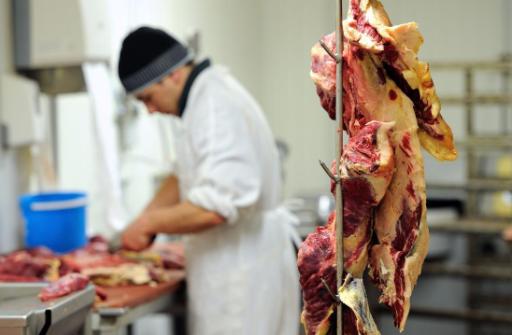Belgium’s Federal Agency for the Safety of the Food Chain (FASFC) carried out 21 control actions in the country between December 2020 and June 2021, including five in slaughterhouses, in an effort to crackdown on illegal meat.
Counterfeit honey and the trade in alcoholic beverages were also looked into, according to the Flemish information centre for agriculture and horticulture (VILT).
“Targeted actions remain necessary because fraud, as in the horse sector, is not a national but a European problem,” said David Clarinval, Federal Minister of Agriculture.
As part of the international Operation OPSON X, the food agency discovered 35 forged horse passports, seven of which had false identities attached.
They also carried out 11 sanitary seizures and opened six files for in-depth investigation.
Horse passports are forged in order to illegally bring in horses that have the legal, irreversible status of “excluded from the food chain.”
These are often riding horses, which may have received medical treatment reserved for animals not intended for the food chain, or horses that the owner or breeder indicated should not end up as food.
“Like any ungulate (editor note: a hoofed, typically herbivorous quadruped mammal like a pig, horse, etc.) that is introduced into the food chain, horses are also subject to an assessment by experts, both before and after slaughter,” said Hélène Bonte, FASFC spokesperson.
The FASFC also took samples from horses that were otherwise eligible for slaughter and analyzed the samples for residues of medicines that would have precluded them from being fit for human consumption.
The medicines proved to be difficult to trace, but the samples taken showed that more than half the equine animals sent for slaughter lacked information on the medicinal treatments they had undergone.
Traces of prohibited molecules, such as diclofenac or thiabendazole, were found in more than 15 percent.
The FASFC emphasised that no non-compliant meat entered the food chain.
They also checked honey products sold in Belgium and discovered one product with added sugars or syrups and one product with pollen atypical of the production area.
The FASFC tracked down those products before they ever went on sale.
Operation OPSON (Ancient Greek for “food”) is organized every year under the leadership of the international police services Europol and Interpol in order to combat adulterated and non-compliant food and drink products entering the market, and dismantle the criminal networks behind such products.
This tenth action, Operation OPSON X, focused on alcoholic beverages, counterfeit honey, and fraudulent horse meat.
In 2020, 3,811 horse carcasses were examined in Belgian slaughterhouses: 59 horse carcasses (1.55%) were seized and excluded from the food chain.
Issues related to horse meat aren't unusual for Belgium or the EU: tons of meat contaminated with listeria were pulled from the Belgian market at the last minute in 2017, in a discovery that helped uncover a large-scale and illegal network of horsemeat traffickers operating in Europe, which is still under investigation.
A similar scandal took place in 2013.

